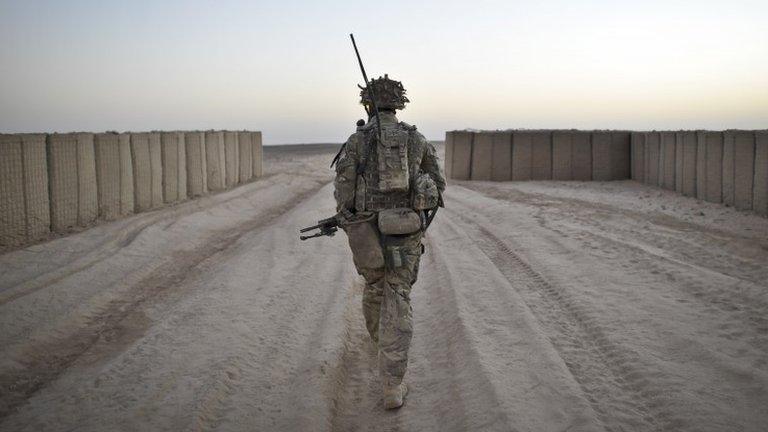Army campaign targets 'snowflake' millennials
- Published
The Army has unveiled its latest recruitment campaign - with posters targeting "snowflakes", "millennials" and "selfie addicts". But how does it compare with previous recruitment drives?
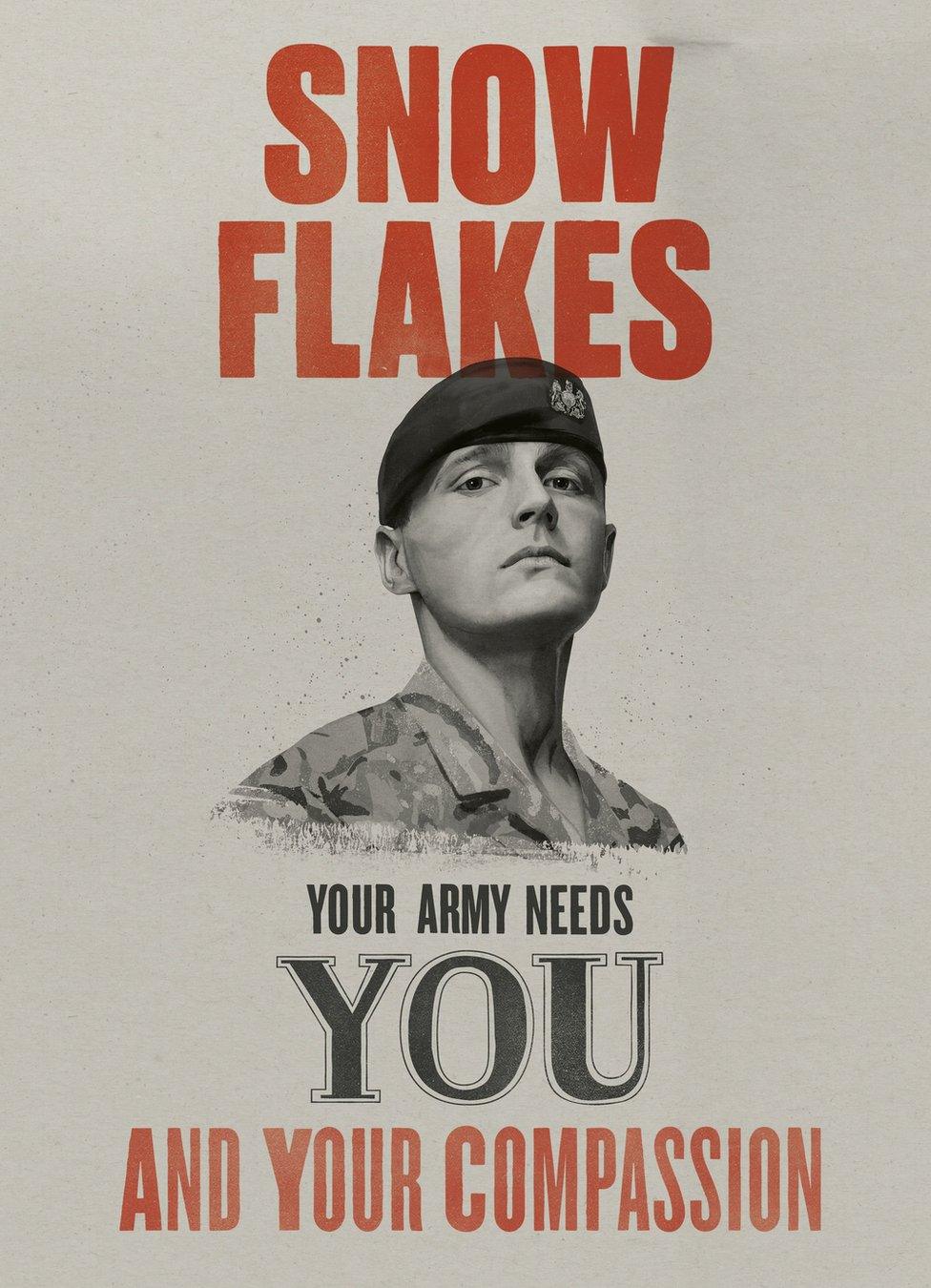

The new designs, which will feature on billboards around the UK, aim to "look beyond the stereotypes" and highlight the potential in young people, including qualities such as confidence, focus and drive.
The posters are part of the Army's This is Belonging campaign, which includes TV adverts featuring young people who feel undervalued in their jobs.
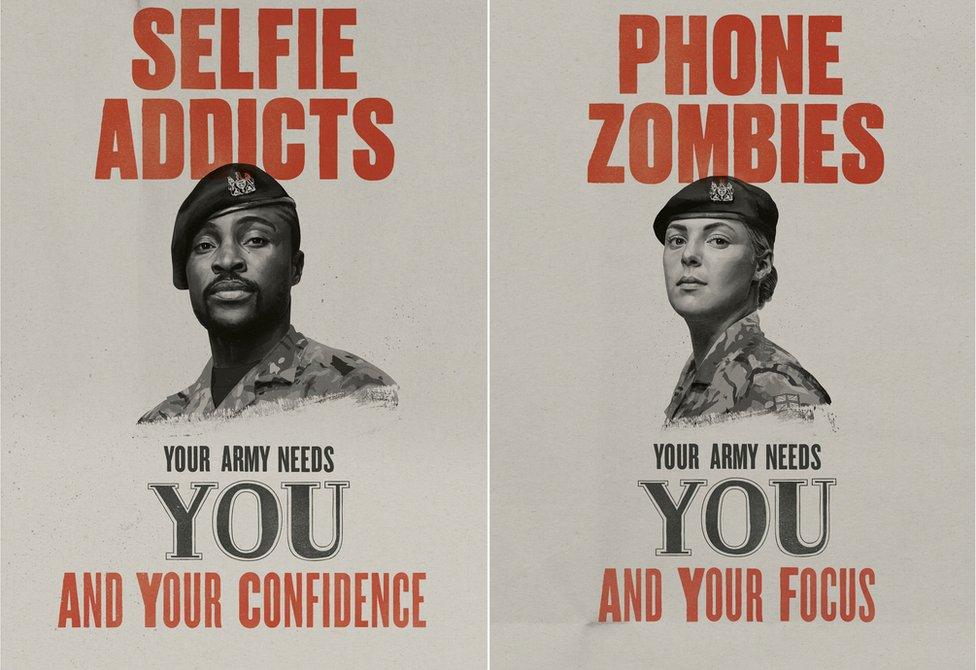
The designs evoke the famous World War One image of the stern-eyed former British war minister Lord Kitchener.
However Alex Walton, a curator at the Imperial War Museum, says this image was never issued as an official government recruitment poster.
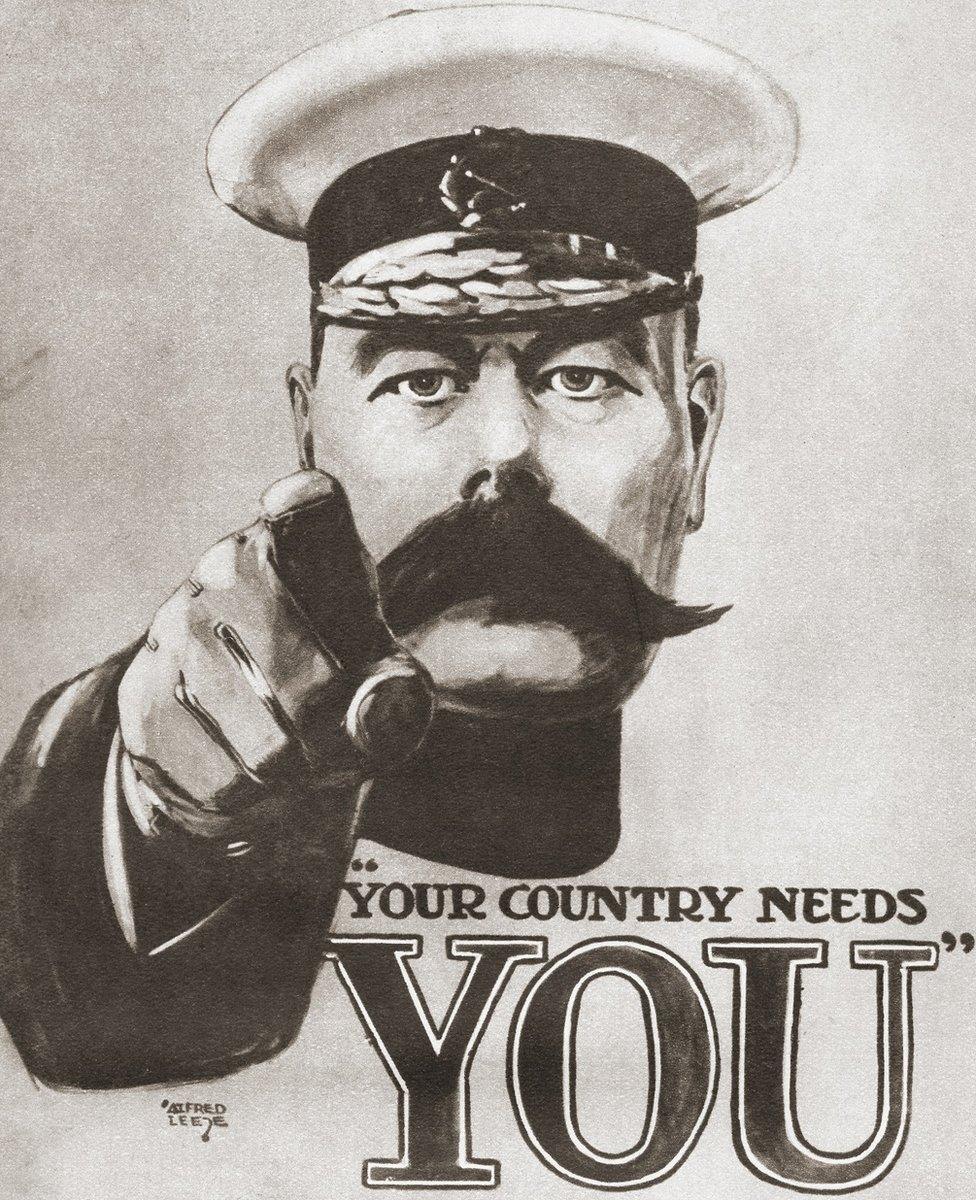

In fact it first appeared as a front cover design for the London Opinion magazine on 5 September 1914, created by illustrator Alfred Leete, with the magazine later printing its own posters.
Although as few as 10,000 copies were made, in comparison to an estimated 5.7 million official posters printed in the UK from 1914-18, it has since inspired numerous copycats.
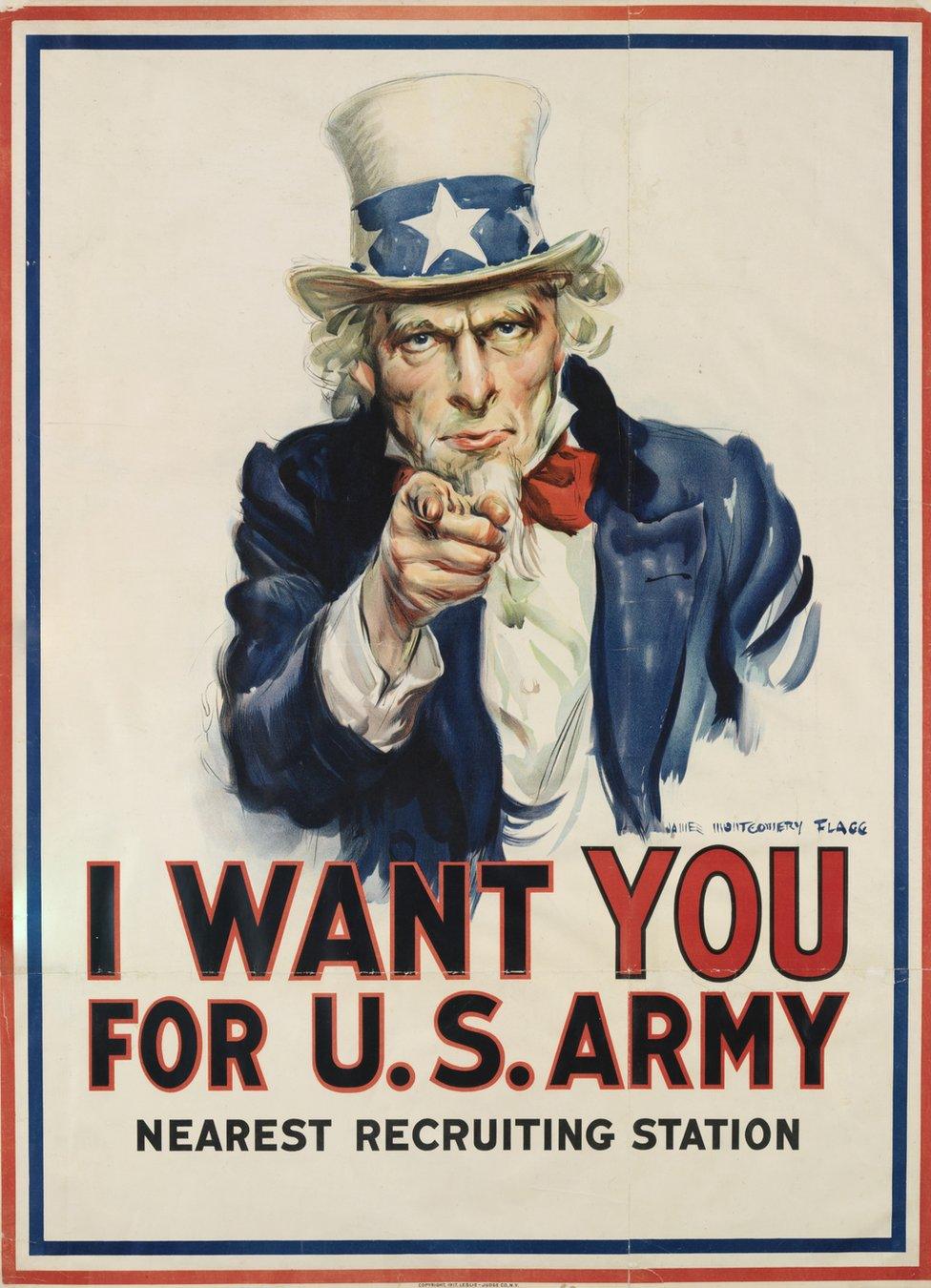
The original Lord Kitchener design inspired a number of similar images such as this American recruitment poster from World War One
"What's interesting is that this latest campaign is really picking up on modern trends but then they've also used the style of a World War One poster," Ms Walton says.
She says the recruitment drive may be trying to tap into current interest in World War One, following the centenary of the end of the war last year.
However Ms Walton says the themes of modern recruitment campaigns remain very different to those of the past.
While the original Lord Kitchener image, along with other posters from the period, appeal to a sense of duty and obligation, today the focus to tends to be on the opportunity for personal development, she says.
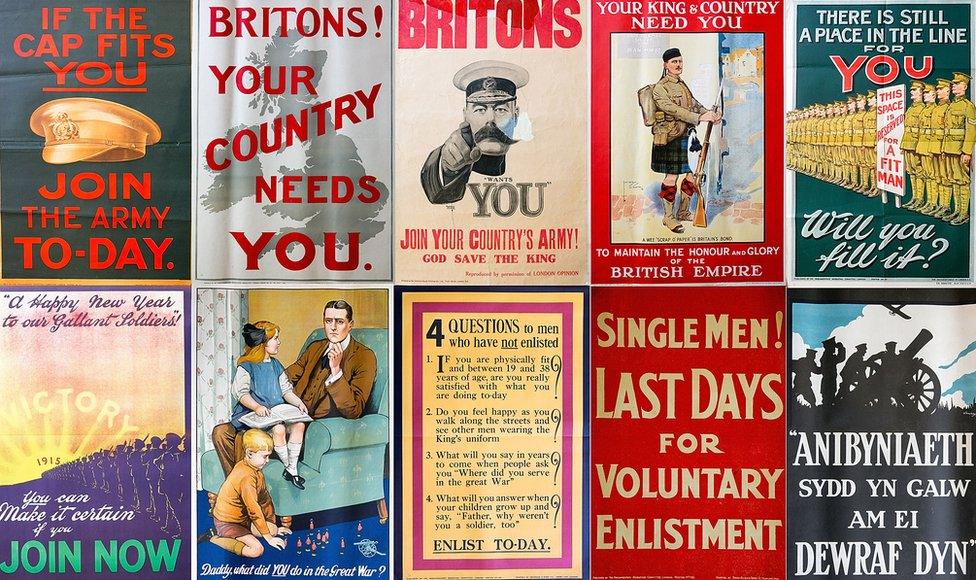
Masculinity was another common theme in recruitment campaigns from World War One and Two - with many appealing to a man's role to protect his family and country.
However, two of the six posters revealed today feature women in uniform.
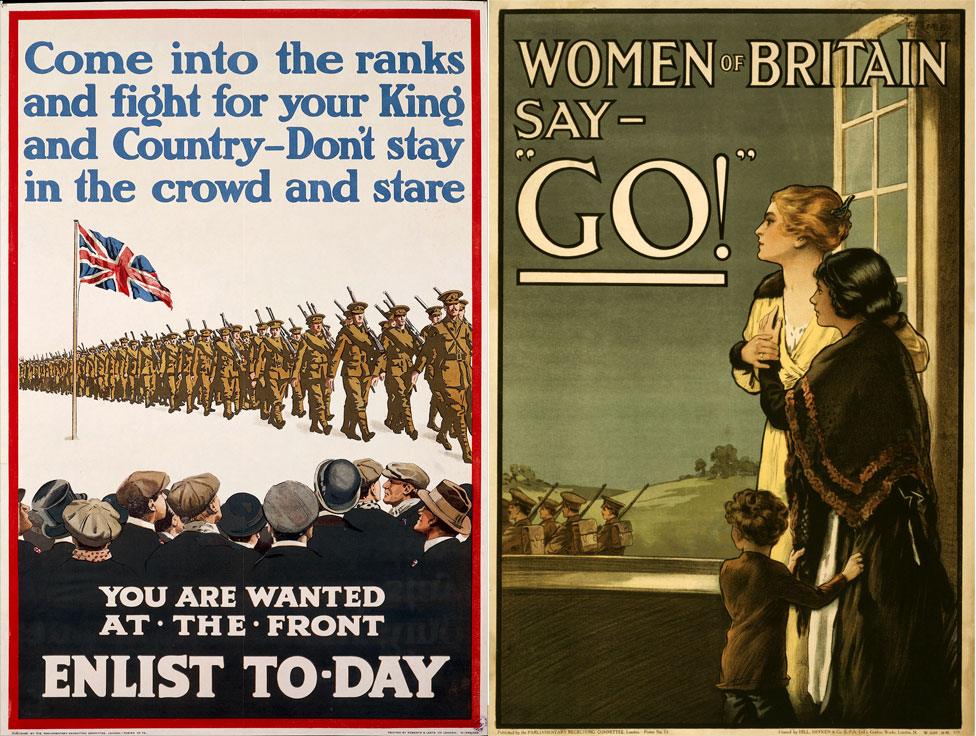
World War One recruitment posters appealed to men's sense of duty
- Published4 August 2014
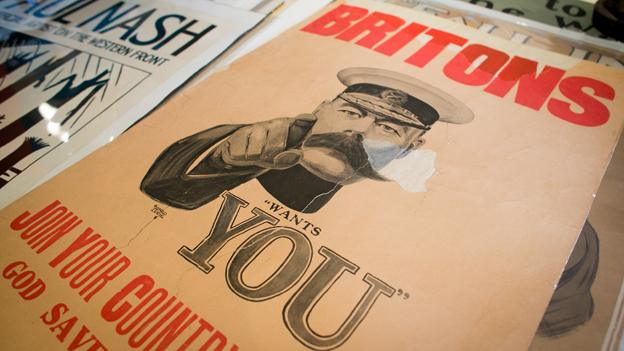
- Published10 January 2018
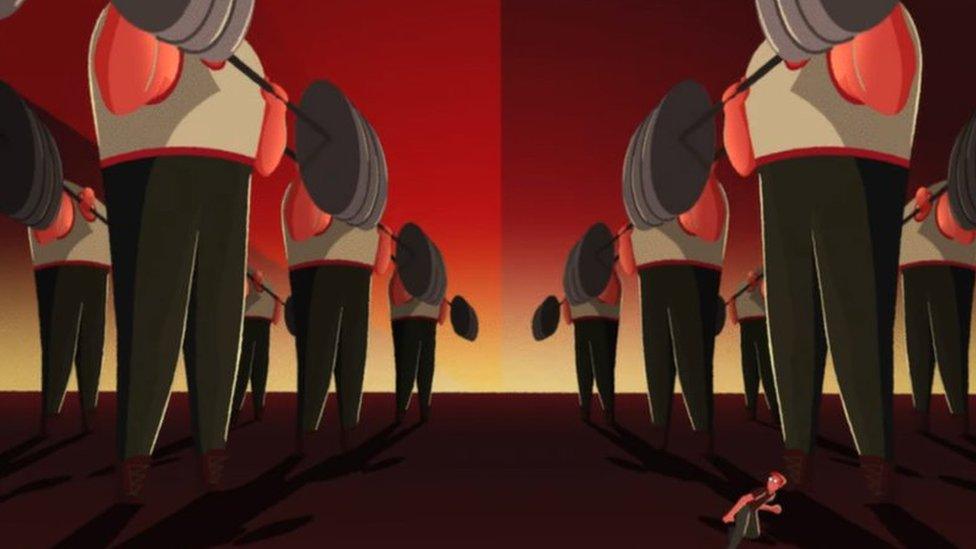
- Published16 January 2015
